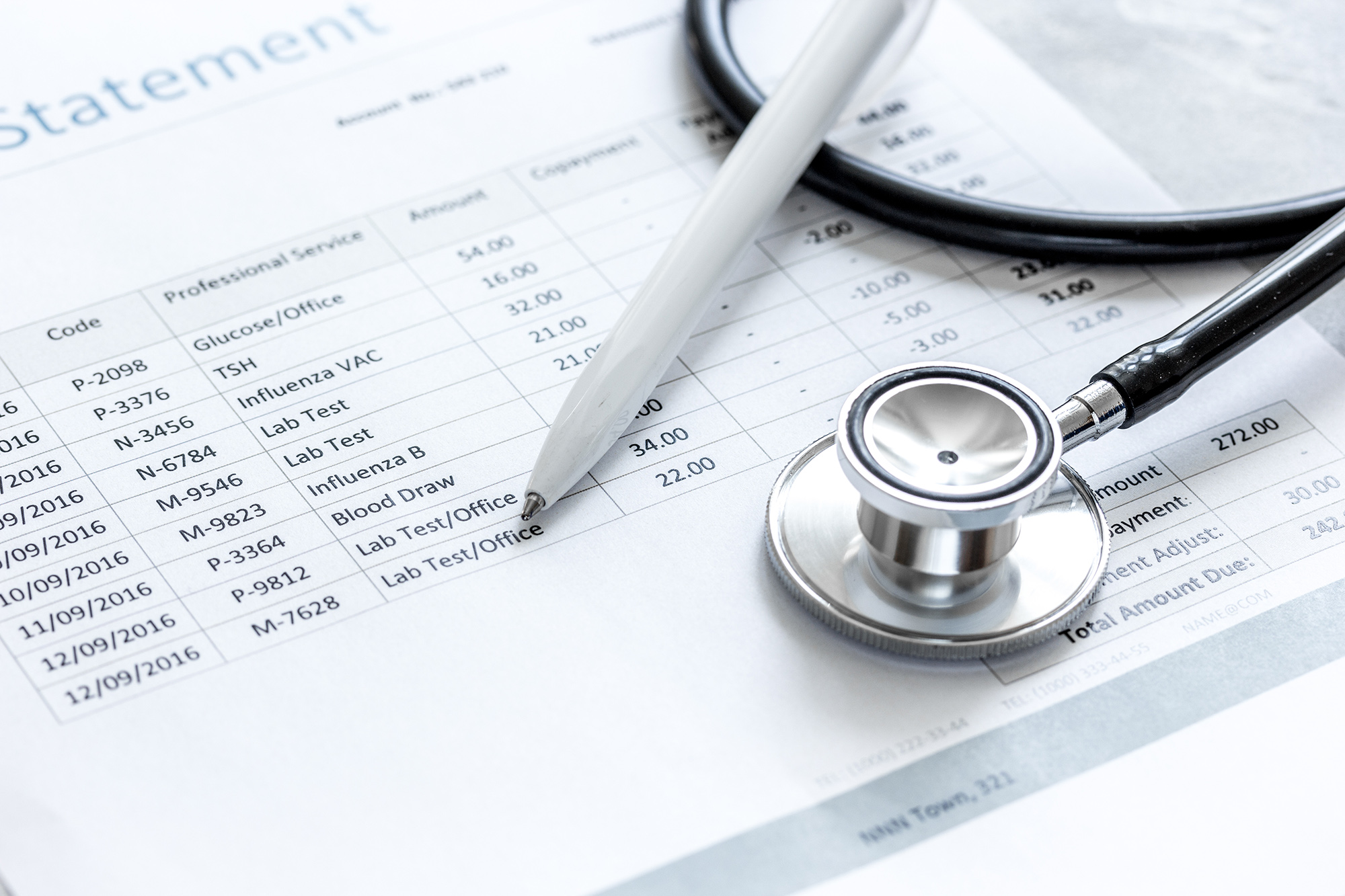Doctors facing the pressure of an overburdened system might be tempted to ignore, or even conceal, signs of burnout. As Dr. Nadia Alam, past OMA president, puts it, “Physicians are conditioned to have a stiff upper lip. We don’t give ourselves the space to be human.” But feeling burned out isn’t something medical professionals should overlook or try to “power through.” Untreated burnout can lead to even greater psychological and physical consequences for providers as well as impact patient care. If you’re experiencing burnout at work, the best option is to get help as soon as possible.
But how can you know when you’re burned out vs. just having a challenging week or month? If you can relate to one or more of the following signs, chances are you are dealing with physician burnout.
Sometimes I think burnout was a blessing in disguise, because it forced me to wake up and really look at how I live my life. Since then, I have actively worked to change.
-Dr. Nadia Alam
10 Signs of Physician Burnout
1. Stressful Surroundings
Unremitting stress can contribute to burnout even for doctors with a high stress threshold. Some research indicates that consistently operating in stressful conditions can leave you at least fifteen times more likely to burn out. Your “normal” may be working in a relentlessly stressful situation (such as a busy ER) or working excessive hours, which may make your stress seem less noticeable over time—but it’s no less taxing on your physical and mental health. So even if you’re not feeling overwhelmed, if the conditions around you are perpetually chaotic, it might be time to proactively ease up or implement some burnout prevention strategies.
2. Depersonalizing Patients
Sometimes it helps to keep some professional distance from your patients, but when patients become ‘that heart attack patient’ or ‘the bleeder’, you might be struggling with burnout. For many doctors, one of the first signs of burnout at work is feeling unnaturally detached from patients. Cynicism, negativity and sarcasm may even creep in. Physicians are so busy that this shift in attitude can be surprisingly difficult to notice. What may help is thinking back to your earlier years in medicine. If there is a marked difference between the way you once cared for and connected with patients and now, burnout is a likely culprit.
“The biggest red flag for me was becoming jaded about my work. I’ve always enjoyed taking care of patients, and losing that joy and feeling of purpose was not me at all.”
3. Feeling Drained
If you notice yourself feeling emotionally ‘used up’ at work (or when you come home), you could be experiencing burnout. This is typically because doctors—like everyone— don’t have unlimited emotional and personal resources for handling stress, difficult tasks or emotional situations. If you feel like your tank is getting emptier and emptier or that you’re not sure how much longer you can keep up your current pace, those feelings are sure signs of burnout that shouldn’t be ignored.
4. Using Unhealthy Coping Mechanisms
One of the more serious symptoms of physician burnout is substance abuse. Unfortunately, while rates of Substance Use Disorder (SUD) for physicians mirror those of the general public, physicians have more barriers to seeking treatment and SUD may be more advanced before treatment is sought. Fortunately, according to the Alberta Medical Association, 95% of Alberta physicians who reach out for help with SUD are successfully treated and retain their licence, so if you’re struggling with substances, you’re not alone and support is effective.
5. Deprioritizing Self-Care
Skipping your morning run for an extra hour of sleep makes sense after a late shift, but if you’re regularly feeding yourself from vending machines or foregoing the gym, showers or sleep in order to keep up with your life, you are being stretched too thin. It might feel like you’re just working hard, but physicians can’t perpetually sacrifice their own health for the job without consequences eventually. If you are deprioritizing your basic needs, see if you can make changes, such as dropping a shift, turning down another committee role, delegating admin duties like billing or outsourcing home priorities to give yourself back some time.
“Sometimes I think burnout was a blessing in disguise, because it forced me to wake up and really look at how I live my life.”
6. Making Errors
Physicians feel unparalleled pressure to perform flawlessly at all times. Unfortunately, some research indicates that physicians reporting signs of burnout may be twice as likely to have made a medical error in the last three months. If you find you’re making more mistakes, even if they’re small oversights with no patient consequences thus far, the root cause may be burnout.
7. Missing Out at Home
If it feels like you’re constantly missing out on important events outside of the office, it could lead to stress in your personal relationships and contribute to the emotional exhaustion that characterizes physician burnout. According to the American Medical Association’s experts, work-life interference is one of the biggest precursors to burnout and physicians perform better when they can spend time with their loved ones. Not to mention, if you’re finding yourself skipping out on your personal life, you might not even be doing your patients any favors: when a doctor’s satisfaction with their job goes up, so does the quality of care.
8. Feeling Misaligned with Leaders
When your leader’s or healthcare authority’s values don’t align with yours, burnout can easily creep in. This misalignment can cause you to feel less motivated and satisfied with your work, especially when it feels like the people who represent you aren’t acting in your best interest. Getting involved in committees and task forces in your organization, professional association or with governing bodies can help you have a voice with leaders on issues that are important to you, and potentially help other colleagues as well.
9. Depression
Physician burnout and depression can go hand in hand—to the point that some researchers don’t even make a clear distinction between the two. Across all studies, most of the doctors with burnout met some or all of the criteria for clinical depression. If you’re feeling blue, exhausted, cynical, or out of touch with friends, family, and things you once enjoyed, this is a big warning sign that you need support.
10. Questioning if You’re Making a Difference
Do you find yourself increasingly thinking, “What’s the point?” Questioning the value of the work you do is a common symptom of burnout. This feeling can arise for many reasons: experiencing a string of patients who don’t take your treatment recommendations; filling out hours of unnecessary paperwork each day; feeling unable to keep up with ever-increasing demand no matter how hard you work… the list goes on. This is a sure sign you need to slow down, implement some burnout prevention strategies or realign your work to connect with why you chose a career in medicine.
Where to find support
When you’re feeling the telltale signs of burnout, it’s not easy to acknowledge them and seek help—especially for perpetually hardworking physicians. However, it’s critical to make changes that prioritize your health and wellness—for your sake and for the sake of your patients.
Many provincial health organizations offer extensive resources for physicians dealing with burnout. In addition, the CMA offers a vast library of physician burnout resources as well as crisis support.
This article offers general information only and is not intended as legal, financial or other professional advice. A professional advisor should be consulted regarding your specific situation. While information presented is believed to be factual and current, its accuracy is not guaranteed and it should not be regarded as a complete analysis of the subjects discussed. All expressions of opinion reflect the judgment of the author(s) as of the date of publication and are subject to change. No endorsement of any third parties or their advice, opinions, information, products or services is expressly given or implied by RBC Ventures Inc. or its affiliates.







